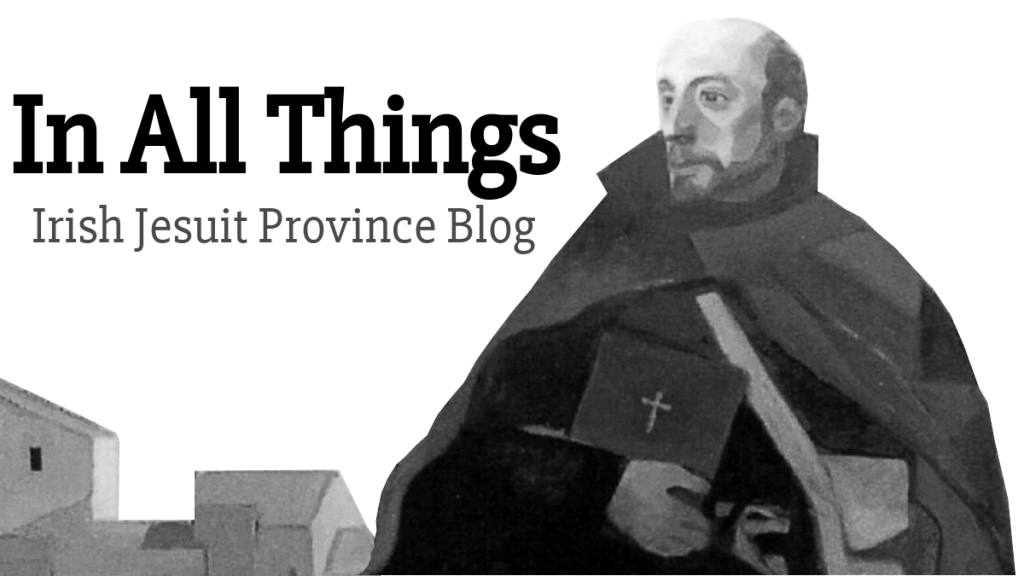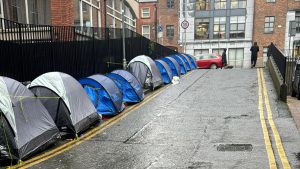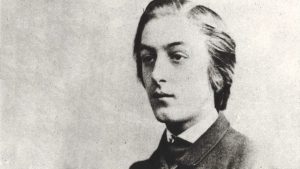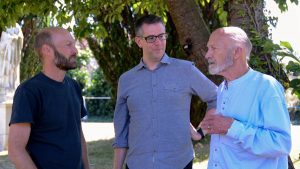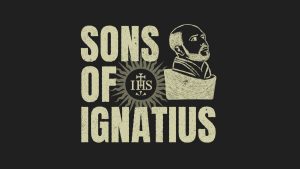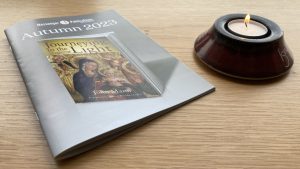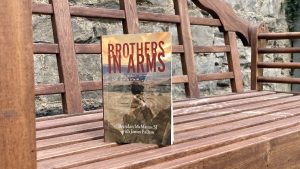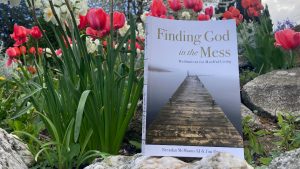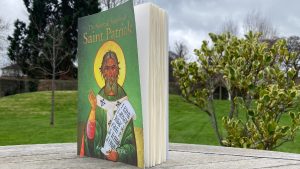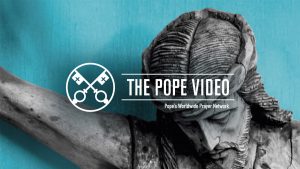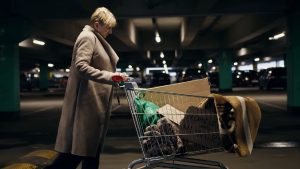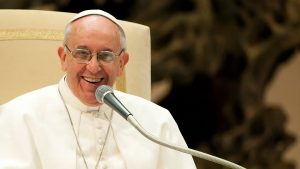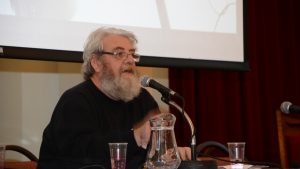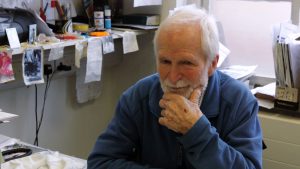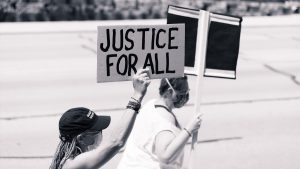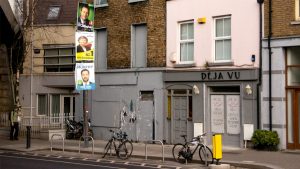Taking a stand for human rights in Cambodia

The coastal town of Sihanoukville has become a beach and gambling resort for Chinese tourists from the mainland. Many newly constructed buildings are already falling down, uncollected rubbish is piled high in the streets and the town floods because of blocked drains. Chinese workers are everywhere. The Government is allowing massive unsupervised Chinese investment in Cambodia. There is talk of a Chinese naval base at Ream.
The works of Hannah Arendt, the political theorist and philosopher, have furnished insights into the political situation in Cambodia, the Catholic Church and Hong Kong which I will attempt to explain in this blog post. A recent court case in Phnom Penh reveals the truth about the political situation here. The insights of Hannah Arendt could help to illuminate the issues around this case. Perhaps her work can also be applied to the political situation of the Catholic Church, of Hong Kong and of Cambodia.
Kem Ley commemoration
Here in Cambodia on the 13th of August last, the Court of Appeal refused the bail applications of Mr. Kung Raiya (main photo) and Mr. Suong Neakpaon. The two were arrested in July for commemorating the anniversary of the political assassination of Mr. Kem Ley, a peaceful social analyst, on the 10th of July 2016. Apparently, the former distributed tee-shirts with an image of Kem Ley on them and the latter distributed leaflets at the site of the murder. Mr. Kem Ley had been shot in broad daylight at a Caltex garage shortly after penning an article outlining the amount of wealth and property amassed by the Prime Minister and his family over the last few years.
Not many people knew of Kem Ley before he was killed but since his death, his name has become a symbol for all those wishing to have a just and democratic society in Cambodia. The official opposition party, the Cambodian National Rescue Party (CNRP) was dissolved by law on the 16th of November 2017 and all its seats taken by the Cambodian People’s Party (CPP) and other small parties. Charles Santiago, the chairperson of the ASEAN parliamentarians for Human Rights, declared that this event was “the final nail in the coffin for Cambodian democracy”.
Since I arrived to work in Cambodia from the camps in Thailand, there have been many other unsolved political assassinations including those of Ms. Piseth Pileka, Mr. Chea Vichea, Mr. Oum Radsady, Mr. Hy Vuthy, Mr. Chhut Vuthy and others.
Hannah Arendt and The origins of totalitarianism
While working in the Cambodian refugee camps along the Thai border during the eighties, our group of volunteers used to read Hannah Arendt’s book on the The origins of totalitarianism to try to understand more deeply the Khmer Rouge phenomenon. We found many similarities to the structures of power and governance put in place by both Hitler and Stalin to those put in place by Pol Pot. The complete control of the media and the use of terror to silence and atomise the society were common features.
After I came to Cambodia in the early nineties, I spent twenty years teaching Mathematics and Philosophy at the Royal University of Phnom Penh. During those years, I prepared an Anthology of Readings in Philosophy in the Khmer language so that students could access the thought and reasoning of the original Philosophers. At that time, I bought another book by Hannah Arendt called “The Human Condition”, but I never read it.
Social Action, Political Inaction
Over the last month, I have begun to study the work in detail. Here I will only mention one insight that may be relevant. Arendt shows how the public and private realms were distinct from ancient times to the Middle Ages. In ancient Greece and Rome, the Father of the Family was the authority figure in the private realm with the duty to provide all life’s necessities to all the members of the Household. He exercised absolute authority in this realm. The Public realm was the place for political discussion and action. Only those who were free from the concerns of the private realm could participate in the public realm. This structure lasted through the Middle Ages and still functioned on the slave plantations, as was illustrated in the novel “Washington Black” by Esi Edugyan, about which I wrote in a previous blog. It is interesting to note that in French the words père de famille have a much more powerful resonance than do the words ‘father of the family’ in English.
However in the modern era, Arendt argues that the social realm has emerged as a realm that seems to be the same as the public domain but is not. Arendt argues that the social realm is really the outpouring of the private realm into the public realm which has the unexpected effect of killing off all innovative and creative political action which was the primary purpose of those acting in the public realm from the time of antiquity. It is in fact impossible here to give a detailed explanation of her insights and reasoning but the conclusion is fascinating.
Arendt is basically saying that we have become paralysed by our own social outpourings so that we are no longer free to think creatively of the appropriate political action to deal with the social problems that we face. We basically do nothing while we appear to be very busy both politically and socially.
Jesuit Mission and Catholic Church in Cambodia
If, in the interest of authenticity, I try to apply this insight to the situation of the Jesuit Mission and Catholic Church in Cambodia, I could say that we meet for parties, reflections and ceremonies but we never really talk about what matters in Cambodia. We only talk about what matters to us. We seem to function with an unwritten agreement that we will not disturb each other with critical questions about our collective actions and values. We assume that we are acting well. There is no free, equal or critical word that can be exchanged among us. There are only individuals in crisis, there is never our organisation, our society, our Church or our country in crisis. We use the value of respect for Asian culture to hide an acquiescence with subservient behavior and attitudes. While we espouse the values of accountability and transparency for others, we avoid applying these values to ourselves. We promote collaboration but then renege on our partnership agreements. The authority hierarchy must be respected at all costs. Dishonesty and corruption can flourish in such an environment. We are a long way from our original ideal of becoming “fools for Christ’s sake”.
On the international level, the Society of Jesus has undergone a laudable process of discernment of ‘Universal Apostolic Preferences’ but without taking responsibility for dysfunctional communities under its jurisdiction. Sometimes it refuses to listen to members of these communities. Nonetheless, it is still exciting to rediscover the dynamism of the Spiritual Exercises of St. Ignatius of Loyola, the service of which has now become the first apostolic preference. In this way it is possible that the fiery love of Ignatius for the Christ pauper, servus et humilis could be rekindled among ourselves and those we live and work with. In a similar vein, the Catholic Church is trying to provide oversight of bishops to promote best practices in child safe-guarding and to prevent further cases of abuse. But it is not involving expert lay and female supervision. Surely our Catholic tradition allows individual bishops to ordain competent women deacons to perform this apostolic service for all of us?
Hong Kong Protests
The people of Hong Kong are, at this moment, providing a wonderful affirmation of Arendt’s insights. The protest began in relation to a proposed legal reform to allow for extradition from Hong Kong to the Chinese mainland. It turns out that this minor legal reform was the proverbial last straw that broke the camel’s back. The people have lost the right to democratically elect their leaders but they still have an independent legal and judicial system. They want to preserve it. Many of the young Hong Kongers are ready to make heroic sacrifices to preserve this value. However it is the creativity of their political action which is surprising and new. Who would have expected it? Who would have anticipated the depth of passion for democracy and justice that runs across all generations and all social classes in Hong Kong now?
Not since the Tiananmen Square protests in 1989 has there been such a strong political challenge to the Chinese Communist Party and its dictatorial rule. So far the response has been a refusal to dialogue and a determination to stone-wall using propaganda instead. There may not be a happy ending to this story. Either compromise prevails and democracy and justice advance in China and Asia or dictatorship crushes the protests and the awful possibility of a third world war moves a little closer. It seems to me that this is what is at stake in Hong Kong now. So the controversial reflections of the Australian backbencher, Andrew Hastie, earlier this month, may not be too far off the mark, after all.
The protesters will need to remember another of Hannah Arendt’s insights to be found in her work On violence. She argues convincingly that political violence is only rational when it is the immediate and spontaneous protection of those we love. Once it becomes “rationalized”, then violence becomes irrational for human beings.
Chinese Investment in Cambodia
Now let us return to Cambodia. When I last applied for my Khmer driving license in Phnom Penh, I was in the company of seven Chinese men who did not speak a word of either English or Khmer. They passed their driving test with the help of an interpreter. The coastal town of Sihanoukville has become a beach and gambling resort for Chinese tourists from the mainland. Many newly constructed buildings are already falling down, uncollected rubbish is piled high in the streets and the town floods because of blocked drains. Chinese workers are everywhere. The Government is allowing massive unsupervised Chinese investment in Cambodia. There is talk of a Chinese naval base at Ream.
If a similar invasion occurred in Hong Kong, would the people there simply accept it as inevitable? Here we find one real issue for Cambodians. Their opposition to the present regime has not yet reached a critical mass. The Cambodian Government has shown that it knows how to dialogue. It has consistently improved the salaries and working conditions of garment workers over the last ten years. It has increased the salaries of teachers and nurses. Yet by using legal means to dissolve the CNRP party, the CPP party leadership has shown that it is afraid of real democracy. Real democracy means Governments change. The CPP leadership has refused to accept this fact. The irony is that there many dedicated and loyal CPP party members are just as committed to their political vision for Cambodia as Kung Saiya and Suong Neakpaon are to their vision. They were quite happy to do battle with the CNRP on a level playing field. The last thing many of these local CPP party members wanted was to “win the match” by bribing the “referee”. However it would be naïve to expect a split between the CPP party leadership and membership.
Courageous Fools for Democracy
So the actions of Mr. Kung Raiya and Mr. Suong Neakpaon are unique. They are completely alone and isolated. They have no political party or association backing them up. After the attacks of the 11th of September 2001 in the USA, Bruce Springsteen produced a new album of songs called “The Rising”. There is one song in the album called the “The Nothing Man”. Cambodia now has two “nothing men” inside Prey Sar prison in Phnom Penh.
The charges levelled against Kung Raiya, the last time he was convicted, according to a report in the Cambodian Daily of February 2017 include incitement to participate in a “color revolution” and “to change the regime for Khmer society”. It is precisely this paranoiac fear of the present Cambodian leadership that reveals a way forward for those individuals searching for the effective political action to bring back democracy to Cambodia. (Cambodia has perhaps never had an independent judicial system). As an American might say; “It’s all in the tee-shirt, stupid”. When Cambodians wake up to that fact, we could have a Democracy moment.
While waiting patiently for such a moment, one can only admire this pair of Cambodian fools who protest on their own. They risk losing everything as did Capitan Acosta recently in Venezuela. The Maduro regime arranged a mock trial in which Capitan Acosta was visibly dying in his wheelchair from the effects of torture. This was obviously a Machiavellian strategy to intimidate other Venezuelan officers who might remember democracy and put the good of the people before obedience to a dictator. The strategy only demonstrates the complete depravity and inhumanity of the Maduro regime. Cambodia has still a long way to fall back down before it returns to this level of barbarity from which it escaped many years ago. So Kung Raiya and Suong Neakpaon stand out as courageous “fools for democracy” and remain worthy of our admiration and support.


